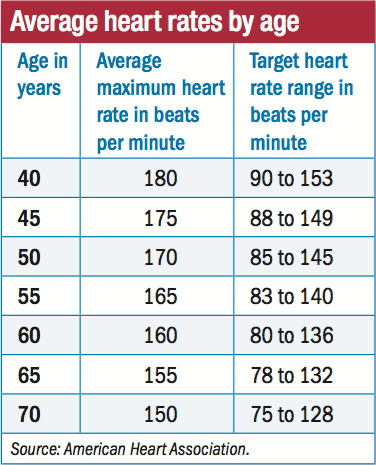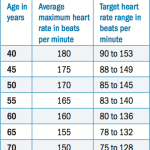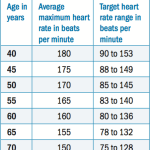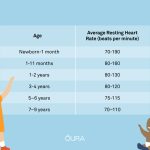Are you curious about your heart rate? Do you wonder if it’s average or not?
The Average Pulse Rate For Men: What You Need to Know
As we go about our daily lives, our hearts beat steadily, pumping blood throughout our bodies. But have you ever stopped to think about the normal range for a man’s heart rate? Understanding your pulse rate can be crucial in various situations, from determining physical fitness levels to identifying potential health concerns. In this blog post, we’ll delve into the average pulse rate for men and explore what it means for your overall well-being.What is the Average Pulse Rate for Men?
According to the American Heart Association, the average resting heart rate for a healthy adult male ranges from 58-100 beats per minute (bpm). For most men, a pulse rate between 60-80 bpm is considered normal. However, it’s essential to note that this range can vary depending on factors such as age, fitness level, and overall health.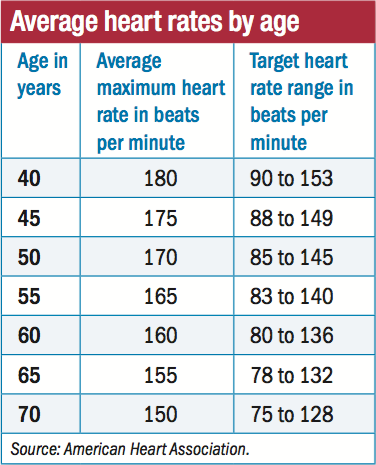
Are you curious about your heart rate? Do you wonder if it’s average or not?
The Average Pulse Rate For Men: What You Need to Know
As we go about our daily lives, our hearts beat steadily, pumping blood throughout our bodies. But have you ever stopped to think about the normal range for a man’s heart rate? Understanding your pulse rate can be crucial in various situations, from determining physical fitness levels to identifying potential health concerns. In this blog post, we’ll delve into the average pulse rate for men and explore what it means for your overall well-being.What is the Average Pulse Rate for Men?
According to the American Heart Association, the average resting heart rate for a healthy adult male ranges from 58-100 beats per minute (bpm). For most men, a pulse rate between 60-80 bpm is considered normal. However, it’s essential to note that this range can vary depending on factors such as age, fitness level, and overall health.Factors Affecting Pulse Rate
Several factors can influence your pulse rate, including: * Age: As men get older, their heart rates tend to slow down. For example, a 20-year-old’s average pulse rate might be around 70 bpm, while a 60-year-old’s average pulse rate could be closer to 65 bpm. * Fitness level: Regular exercise can lower your pulse rate due to increased cardiovascular efficiency. Professional athletes may have pulse rates as low as 40-50 bpm during rest. * Health status: Certain medical conditions, such as high blood pressure or heart disease, can cause an increase in pulse rate. * Medications: Some medications, like beta blockers, can slow down your pulse rate.What’s Considered a Normal Pulse Rate for Men?
While the average resting pulse rate for men is between 58-100 bpm, it’s essential to consider individual factors. For example: * A sedentary man with a high blood pressure might have a pulse rate around 90-100 bpm. * An athlete in his prime might have a pulse rate as low as 40-50 bpm during rest. It’s crucial to consult with a healthcare professional if you’re concerned about your pulse rate or overall health. They can help determine a normal range for you based on your unique circumstances.Takeaway
Understanding the average pulse rate for men is just the first step in maintaining a healthy heart. By being aware of factors that influence your pulse rate and tracking your own heartbeat, you can take steps to improve your cardiovascular health and overall well-being. In our next post, we’ll explore ways to monitor your pulse rate and what you can do to keep it within a healthy range. Learn more about heart health and exercise from the American Heart Association.Get Expert Medical Advice
Discover the importance of maintaining a healthy pulse rate and how our medical experts can help you achieve it.
Start chatIn our previous discussion, we explored the average pulse rate for men, a crucial aspect of understanding one’s overall well-being.
Summarizing the Key Points
To recap, we learned that the American Heart Association defines the average resting heart rate for a healthy adult male as ranging from 58-100 beats per minute (bpm). For most men, a pulse rate between 60-80 bpm is considered normal. However, this range can vary depending on factors such as age, fitness level, and overall health.Final Insights
Knowing your average pulse rate can be beneficial in various ways. It allows you to monitor your physical fitness levels, identify potential health concerns early on, and make informed decisions about your lifestyle choices. Additionally, understanding your heart rate can help you develop a personalized exercise routine that suits your needs.Conclusion
In conclusion, the average pulse rate for men is an important metric to consider when evaluating one’s overall well-being. By understanding this range, you can take control of your health and make informed decisions about your lifestyle choices. Remember, a healthy heart rate is just one aspect of maintaining a healthy lifestyle. Make sure to prioritize other essential factors such as diet, exercise, and stress management for optimal overall health.
Frequent urination a warning sign of high blood sugar: Don’t ignore that extra trip to the bathroom! High blood sugar levels can be causing your body to produce more urine than usual, leading to frequent urination. Learn what you can do to manage and prevent this common symptom.
Miss periods on the pill? Can you?: Are you taking the pill and wondering why your period is MIA? We’ve got the answers! From hormonal imbalances to underlying health issues, discover what could be causing your missed periods.
Average core body temperature: Ever wondered what’s the average temperature of a healthy human body? Learn the surprising answer and explore what it means for your overall well-being!
Miss periods on the pill? Can you?: Are you taking the pill and wondering why your period is MIA? We’ve got the answers! From hormonal imbalances to underlying health issues, discover what could be causing your missed periods.
Average core body temperature: Ever wondered what’s the average temperature of a healthy human body? Learn the surprising answer and explore what it means for your overall well-being!

